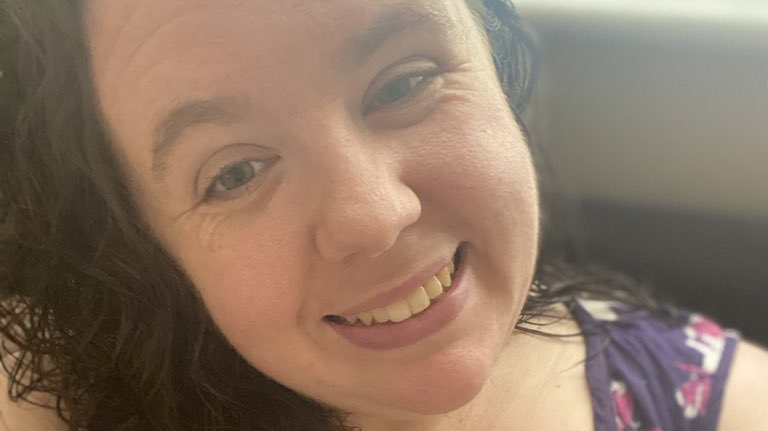
Louise is a care experienced musician, actor, writer and creator. Here she shares why she started writing plays and the importance of theatre in sharing stories of care. You can also share your story with her if you would like to be involved in her latest project!
I love to tell stories.
It is one thing I am hugely passionate about. When I was at university, and I did the playwriting module for my extended writing piece – I decided to tell stories. It was fascinating to learn about the people who answered my questionnaire. They were all anon but as the people who replied to me were friends of mine – I knew who each person was. But, I never saved their answers with their names.
My dissertation play was telling stories of people who have a Christian faith, those who have walked away from the church and those who have a faith of some kind. As a Christian myself, I thought this would be an interesting experiment to explore how and why people came to faith, but also why many walk away. My plan was for it to become a teaching tool for the church so that leaders of Christian institutions could learn what was working well and what was not working so well. As I wrote my play and researched the statistics, I became aware of many things that I didn’t know prior to starting my original 60 minute play. As questionnaire answers came in, I was exposed to many different coming to faith stories and the various ways people felt pushed out of the church.
There’s one particular Drama Practitioner that I tend to write in the style of; his name is Bertolt Brecht. He designed the style of theatre called “Epic Theatre”. The premise of Epic Theatre is that the audience are reminded they are watching a play and not real life (a style called Naturalism); Epic Theatre is also about educating the audience about a particular topic or theme. Brecht was particularly political so a lot of his pieces focus on the politics at the time – some are still relevant today! I write in his style as I find that my experience of working in schools and with young people has ingrained in me the importance of educating people about certain topics they may not be made aware of otherwise. I also write in his style as a lot of the characteristics he developed are just awesome! Such as: multirole, ensemble work, music/song as a medium, placards and more. If you were to read anything I’ve written in a theatrical style – you’ll see elements of Brecht.
Well, earlier in 2022 I had an idea. As a care experienced person, I have constantly had to deal with the negative connotations the media places on children and young people who have grown up in any type of care away from their primary caregivers. And as I love telling stories, I thought about writing a play telling the stories of care experienced young people from all ages and all across the UK who have
experienced various types of care. However, my idea gets even better. Wouldn’t it be cool if this play (if it comes to fruition) was directed by a CEP, produced by CEP, performed by CEP, hosted by CEP… you get my drift?
So, to get my project started, I designed a simple survey that is completely anon for CEP to answer if they want too. It asks questions such as age you came into care, did you enter with siblings, tell me about your experience in as much detail as you’d like and what do you think could be improved. With these answers, I will then start to craft a story that somehow melds all of the stories together. I haven’t worked out what that will be yet but I’ve given myself a deadline of the end of 2022 so that’s a bit of time!
If I am unable to write the play I want to write at the moment, I’ve also thought about how cool it would be to explore telling the stories of siblings who went into care together but how they each saw their experience. My two sisters and I entered the system together and were very fortunate to be placed together for a number of years; however, in our time in the same placement – we will have seen things very differently.
Drama and the theatre are so important to me and the transferable skills it offers. It infuriates me that drama is being cut as a subject in schools as it’s not considered a “core subject” but what about teaching problem solving? Public speaking? Projection? Diction? Team work? These are the elements of drama and theatre I am so keen to promote; if I am able to write this play and produce it in the way I envisage, the workshops prior to rehearsal will be focusing on all these things!
If you’re a care experienced person who would like to answer the survey, please click this link. If you work with care experienced young people or have connections with care experienced people – please share the link around. The more stories I am able to share, the more rounded this play will be.
Follow Louise on Twitter @mynameis_2long.
Louise also shared her experience of fostering friendships and creativity in Coram’s Voices Through Time programme, and spoke to us in series 2 of the IMO Podcast about loneliness and isolation in the care system, the lack of support for care leavers who want to study at postgraduate level, and her experience of building relationships at university in. She has also been featured in our Turning 25 series, sharing her experience of losing support from her Local Authority. You can also check out the other posts from our care experienced led projects series and if you’ve got a project you’d like to share, get in touch!
Comments